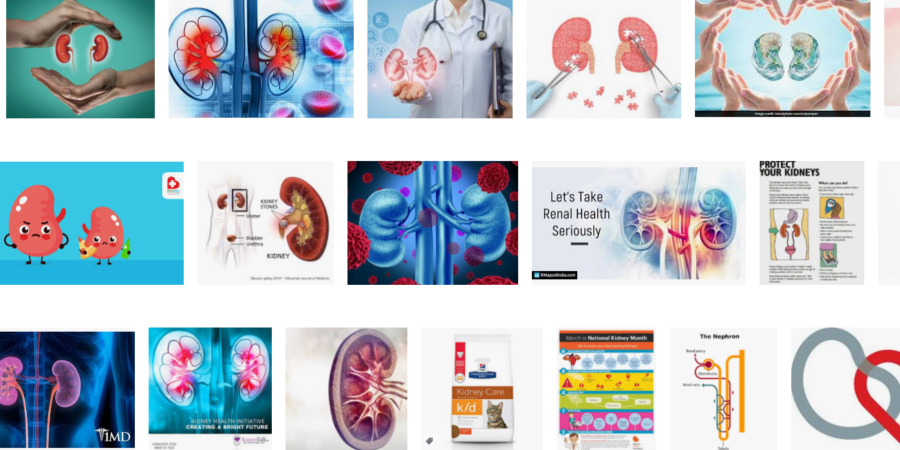The vital organ that helps remove waste from the body, control blood pressure and regulate hormones, the kidneys are often not given the importance they deserve.
Just like the heart, liver, pancreas, and lungs, kidney health is also important. Kidneys are bean-shaped and reddish-brown in colour about the size of one’s clenched fist. This vital organ is responsible to eradicate waste from the blood and return the cleaned blood back to one’s body. Other notable functions of the kidney include maintaining body fluid at the correct levels for the body to function properly and make and regulate important hormones in the body that is responsible to control blood pressure.
Holistic Health
Kidneys maintain the body’s fluid and electrolytes, pH level of blood, amount of water in the body, in distribution of nutrients in the cells and removal of waste from it). A balanced electrolyte is important for nerves, muscles, heart and brain to function properly. Kidneys also help in reabsorption of nutrients such as glucose, amino acids, water, chloride, sodium, magnesium, potassium and ions from the blood and transport them to various parts of the body. The kidney is responsible for maintaining the internal environment of the body so that the body functions optimally. For that reason, the kidney is involved in the secretion of waste products and excrete excess water. These actions result in regulation of acid in the body, salt and potassium levels. The kidneys also produce hormones that regulate blood pressure (renin-angiotensin), the production of red blood cells (erythropoietin) and for bone health (active Vitamin D). Kidney health would therefore mean protection of the heart, nervous and other system health.
Kidney Issues
One of the most common kidney problems is chronic kidney disease where there is a gradual loss of function over time and this can be life-threatening. “Other kidney issues are kidney stones (a hard collection of salt and minerals that are made up of calcium and uric acid which form inside the kidney), and polycystic kidney disease (here, clusters of cysts tend to develop within the kidneys owing to which it can enlarge and lose function), and kidney failure,” says Dr. Chandan Chaudhari from Department of Nephrology at Wockhardt Hospital, Mumbai Central. Some of the symptoms to be watch out include reduced amount of urine, swelling around eyes, ankles and feet, frothy urine, unexplained shortness of breath and fatigue or general weakness. Urinary Tract Infection (UTI), Polycystic Kidney Disease (cyst formation in the kidney) and Glomerulonephritis, an inflammation of Glomeruli due to infections, drugs and disorders that occur during or shortly after birth are other issues. According to a research report, chronic diseases have become a major cause of global morbidity and mortality. In India, the prevalence of CKD is 800 per million population (pmp), and end-stage renal disease (ESRD) is 150–200 pmp. Dr. Alan Almeida, Consultant Nephrology, Hinduja Hospital Khar explains, “kidney disease related to diabetes and blood pressure are leading causes of kidney failure. In addition, indiscriminate drug use, environmental toxins, infections including diarrhoeal illnesses, may also contribute to kidney failure. Symptoms pointing to kidney disease may vary in intensity and may not necessarily point to a kidney ailment or could be also seen in other illnesses.”
Fitness Matters
Staying fit can be beneficial for your kidney health. High blood pressure tends to take a toll on your kidneys, thus it is essential to keep your numbers in check. Drink plenty of fluids to keep your kidneys in top shape. Smoking can damage the blood vessels present in the body and this can lead to slower blood flow to the body as well as your kidneys. Dr. Kamal Kant, Rama Hospital adds, “kidneys plays a key role in body function not only by filtering the blood and getting rid of waste products, but also by balancing the electrolyte level in the body controlling blood pressure and stimulating the production of red blood cells.” Dr. Salil Jain, Consultant Nephrologist, Director & HOD, NephroPlus at Fortis Memorial Research Institute adds, “try to take the least amount of salt and sugar. Salt increases your BP and risk of having stones. Sugar increases your weight which in turn is a risk factor of diabetes. One myth which is very common is that if you drink 2-3 litres of water early morning, it helps your kidney health. Maintaining hydration is very important for kidney health but it has to be maintained throughout the day. So my suggestion is to take fluid not only in the morning but throughout the day at regular intervals within moderate amounts (1.5 – 2 litres per day ) is good enough for normal person.”
Food Fix
Avoid colas, canned and processed food, packed, instant and pre-made meals and opt for blueberries, egg whites, buckwheat, olive oil, cabbage, bell peppers and onions to keep your kidneys healthy. Dr. Manjunath S, Consultant – Nephrologist, BR Life SSNMC Super Specialty Hospital explains, “following a healthy diet plan is of utmost importance in keeping kidneys healthy and prevention of various diseases. A kidney-friendly diet not only protects the kidneys, it also helps further progression of the disease in people with existing kidney disease. A diet plans is usually recommended depending on the types of kidney diseases and severity. An ideal diet plan is to limit intake of sodium, phosphorus and potassium and consume healthy amount of protein. Eat plenty of fruits and vegetables. One may consider including fruits such as apples, pineapples and vegetables such as cauliflower, cabbage, garlic, onion in the diet. It is imperative to limit intake of food items rich in sodium, prosperous and potassium such as bananas, diary, processed meats, potatoes, tomatoes, whole-wheat bread and orange.” Dr Haresh Dodeja, Consultant Nephrologist, Transplant Physician & Head of Renal Sciences Fortis Hospital Mulund adds, “high Protein diet is to be avoided, but protein in normal quantities can be consumed. The commonest mistake people make is to avoid all kinds of proteins, this leads to malnutrition, which harms the patient in the long run.” “The dietary requirements differ with the stage of kidney disease. For example, for a patient on dialysis, diet low in fluid, salt, potassium and phosphorous content is advocated. Depending on the kidney disorder anticipated, e.g. stone disease, diet modifications are advised. High purine diets are avoided in patients with uric acid disorders. In patients with stone disease, high fluid volume intake may be recommended,” avers Dr. Almeida.

Health Check
To keep your kidneys healthy, opt for tests like urinalysis and serum creatinine test. These tests will be carried out by an expert after which you will be suggested a proper line of treatment. People with diabetes should be extra cautious as it can affect your kidneys in a negative way. Diabetics may suffer from kidney damage and hence must monitor blood sugar levels on a regular basis. Avoid taking over-the-counter medication that can be risky and only opt for the medications prescribed by the doctor. People with risk factors need to do regular health check-ups for their blood sugar and cholesterol levels. Since, most of the kidney diseases at its initial stage do not show any signs and symptoms, it is recommended to undergo certain tests and know your kidney number. “It is conducted to know how well your kidneys function. The GFR (glomerular filtration rate) will determine the stage of kidney disease. Urine test helps to test the amount of albumin, RBC leakage in your urine. High amount of albumin indicates early sign of kidney damage,” adds Manjunath. In an individual with a history of kidney disease in the family, tests are advised to monitor kidney function or to detect kidney disorder early so that corrective steps or steps to retard the deterioration of kidney disease may be adopted (for instance in polycystic kidney disease which runs in families). Urinalysis is one such common test used to screen for kidney disease.
Myths
- Rock salt is better than iodised salt.
- Barley water has medicinal value in urinary tract infections
- Cranberry juice intake is beneficial in urinary tract infections
- Avoidance of vegetables or fruits with seeds in patients with stone disease.
- Consumption of high volumes of water (10-12 glasses per day) is essential for kidney health.
- Avoid calcium in all stone disease.
This story first appeared in the November 2020 issue of Smartlife magazine here:
